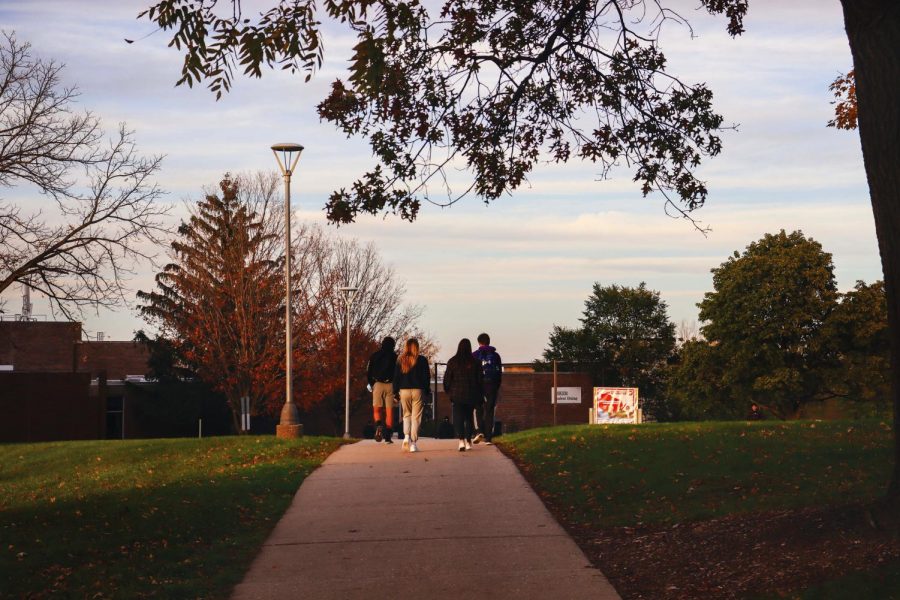Students want week-long Thanksgiving break
Students walk towards Esker Dining Hall after the school day, Nov. 2021.
November 14, 2021
With midterms coming to a close, the school year heads into deeper waters with thoughts focused on Thanksgiving Break. Although UW-Whitewater’s Thanksgiving break begins Nov.23 and resumes classes on Nov.29, some students are pushing for the university to allow for a week-long break in the fall. With the thought of final exams and papers arising during the later parts of the semester, students are trying to connect with their campus to extend their break and spend time with family, but also to recuperate from a stressful semester.
Dealing with homework, lectures, mental health, and a social life is a challenging task for many students. So much is on the line during these four precious years at college. Maintaining a healthy lifestyle that has a great work-life balance is super important for students as they embark on a journey to find themselves and what they want to do for the rest of their lives. A junior on campus, Megan Schroeder is part of the group of individuals pushing for an extended break this upcoming Thanksgiving week.
“I personally think it would be really nice to have a Fall Break for multiple reasons,” said Schroeder. “For one, we have a week break in the spring, so why not have one in the fall too? I also believe it would be good to advocate this break as a mental health support break, especially since a lot of people begin to get stressed out towards the end of the fall semester.”
A case that many have made, mental health is important especially at this time of the semester. Papers are being handed out and exam dates are scheduled for students to attend. Cramming in several long hours of homework and studying can take a toll on a student. Managing so much work in a short amount of time between Thanksgiving and finals week is a tough task.
Aside from students, professors are also speaking out on an extension for a fall break. Much like students, they are also under a lot of stress and work. Grading homework, quizzes, exams and other miscellaneous work requires a fortress of a mind to focus on. Lecturer Olesya Ostapenko has given her insight to an extended fall break as well.
“At UW-Whitewater; I just think it’s time to not just talk about how important students’ mental health is, but also do something concrete about it,” said Ostapenko. “In the middle of the semester the weather changes, days become shorter and shorter, students are tired and burnt out, attendance starts to slip, and they have a lot of other responsibilities, not just school.”
Another professor expressing his ideas on an extended break is Professor Erik Loepp. Professor Loepp understands the significance of a break and what that would mean to students who might be struggling, but Loepp also points out a very important detail about laws regarding breaks.
“The main challenge is we do not have time to add/extend a break. We are required by the Higher Learning Commission (HLC) to schedule a certain number of instructional days each academic year to keep our accreditation,” Loepp said. “At the same time, Wisconsin state law does not permit classes at public institutions to begin before the first of September. To comply with these policies, our fall semester must include a long period without a break prior to the Thanksgiving holiday. I do think that taking a day to oneself is a very good excuse.”
With many different viewpoints and conflictions, a break from school is something that is really difficult to create. A break is something that requires a lot of thought and planning in order to work into the school year. Although mental health is important, following the laws in place and maintaining an organized school year is just as important.














